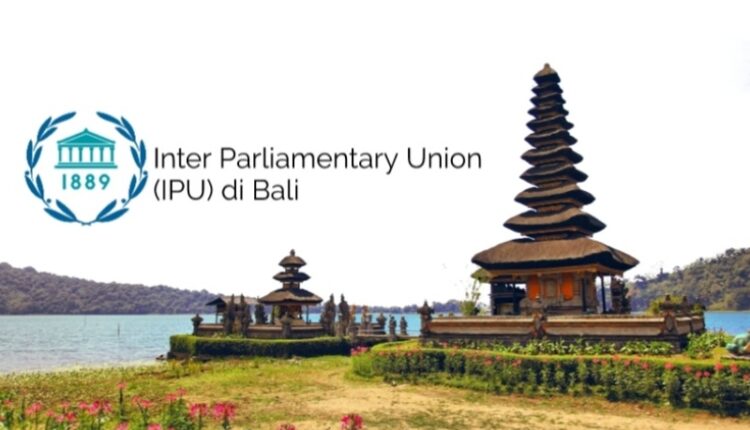IPU Diplomacy Forum Realizing National Interest
By: Restu Dwi )*
The 144th Session of the Inter-Parliamentary Union (IPU) will be held in Nusa Dua, Bali in March 2022. This big event is eagerly awaited by the public because it is a strategic momentum for the Indonesian parliament to realize its various national interests.
In fighting for Indonesia’s national interests in international forums, DPR RI Chair Puan said the DPR, through its parliamentary diplomacy function, has held several inter-parliamentary cooperation meetings. Among them were delegates from Ukraine, Slovakia and Spain
In the IPU event, climate change seems to be the main issue to be discussed, because the issue of climate change is currently a real threat to planet earth. In this context, the House of Representatives’ Inter-Parliamentary Cooperation Agency (BKSAP) emphasized the importance of strengthening parliamentary functions in building parliamentary diplomatic collaboration. This is because parliament plays a vital role in initiating government policies to achieve Net Zero Carbon Emissions.
Deputy Chairman of the BKSAP DPR RI Sihar P.H Sitorus emphasized that the issue of climate change should be one of the priorities of the government’s development program. The World Parliament and Indonesia share a common view of saving the planet from the threat of climate change and global warming. Therefore, the IPU event in Nusa Dua is expected to be an arena for every country to be able to diplomacy related to handling global problems.
Every country in the world has to start changing its development orientation towards a blue economy in order to achieve sustainable development goals (SDGs).
The strategic point was born in the world parliament meeting entitled ‘Turning the Challenges of the Covid-19 Pandemic into Opportunities for Parliaments to Achieve the SDGs. Fadli Zon as Chair of the House of Representatives Inter-Parliamentary Cooperation Agency (BKSAP) Fadli Zon echoed that the impacts of climate change will not be controlled if there is no concrete global action. Fadli assessed, in this context parliament plays a strategic role to encourage government policies to directly answer the SDGs.
He explained, “Parliament as a representative institution must take responsibility for dealing with climate change and global warming by integrating these issues into policy formulation, budgeting and monitoring, so that they are relevant to the global targets set out in the Paris Agreement and the Sustainable Development Goals,” he explained. Fadli said.
In the context of Indonesia, Fadli said that the DPR RI is currently pushing for renewable energy regulations as a concrete step towards energy transition and reducing carbon emissions as well as efforts to mitigate the impact of climate change.
In his presentation, Fadli explained, “The DPR RI will speed up the process of formulating the New Renewable Energy Bill (RUU EBT). The draft will create supportive policies on the use of green energy, provide incentives for businesses in the renewable energy sector, increase human resource capacity in the renewable energy sector, and set competitive prices.”
“Through this breakthrough, renewable energy will be an attraction for investors as well as the development of a green industry,” he added. The same thing was conveyed by a number of speakers, including Maisa Rojas (Director of the Center for Climate and Resilience Research Chile and Lead Author of the 5th Assessment Report of the Intergovermental Panel on Climate Change / IPCC).
Next, Andrew Raine (Head of International Environmental Law Unit, United Nations Environment Programme), and Paola Albrito (Chief of Branch for the Intergovermental Processes, Intergency Cooperation and Partnership United Nations Office for Disaster Risk Reduction/UNDRR).
This meeting resulted in strategic conclusions. First, climate change must be a mutual consent and energy transition is a rational choice in an effort to deal with the impacts of climate change. The transition to a green economy is of course expected to have a positive impact on economic growth and employment.
Second, climate change policies must be synergistic with efforts to recover from COVID-19, which is still a pandemic, and this must be realized through various programs such as social protection, vocational education and investment in programs that involve the community.
The issue of global warming, of course, cannot be handled alone, it requires coordination and diplomacy with other countries because this problem requires concrete solutions that can be implemented in various countries. In addition, the IPU is also a vehicle for diplomacy to realize Indonesia’s various national interests, including the handling of Covid-19 and the ease of investing.
